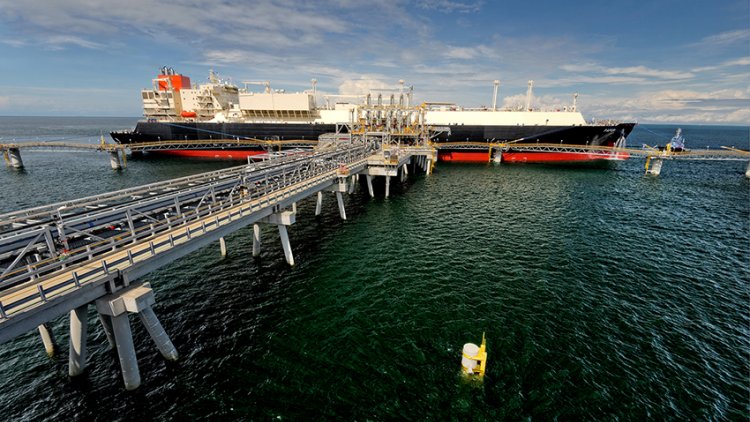Russian oil giant Lukoil has announced it will pause projects in Iran to study the impact of new American sanctions imposed on its Caspian neighbor. At the same time, the world’s largest oil refinery, based in India, has announced it will stop imports of Iranian oil for the time being. And France may follow.
“Considering the latest developments, I guess, it’s too early to say what our plans [regarding Iran] will be. For the moment, basically, we have everything on hold,” an official from Lukoil, Russia’s second biggest oil producer, said last week, according to Reuters.
The company CEO Vagit Alekperov said earlier that, “Lukoil is now re-assessing risks of operations in Iran after the recent U.S. decision to re-impose sanctions, but remains upbeat on Iraq despite the recent elections,” adding that the company is “doing no sudden movements towards Iran, but assesses the risks.”
Lukoil has been in talks with Iran over development of the Abu Teymur and Mansuri oilfields. Earlier this year representatives of the company were discussing establishing consortiums with Maersk, from Denmark, and Pertamina, from Indonesia, on the two fields.
On May 8, U.S. President Donald Trump announced that the United States will withdraw from the Joint Comprehensive Plan of Action (JCPOA), better known as the nuclear agreement, saying that Washington, “will be instituting the highest level of economic sanctions” on Iran.
Lukoil is not the only major energy company wary of doing business with Tehran. India's Reliance Industries, which owns the world's biggest refining complex located in the state of Gujarat, told the National Iranian Oil Company that the firm will stop oil imports in October or November of this year. Insurance companies have asked Reliance to end its exposure to Iran before the sanctions take effect in November.
Two Indian banks, IndusInd and UCO, which have facilitated exports to Iran, have informed Indian exporters they should wind down their deals with Iran by August 6, according to information provided by the Federation of Indian Exporters Organisation and reported by Reuters.
India is Iran’s biggest oil customer after China, and the two countries have long-standing political and commercial ties. Indian exporters mostly receive payments in Indian rupees for exports to Iran under a mechanism devised in 2012, when banking channels involving the U.S. dollar were restricted due to previous rounds of American sanctions.
French energy company Total said on May 16 that it might quit a multi-billion-dollar gas project if it could not secure a waiver from U.S. sanctions.
In a response to Total’s public announcement, Iranian Oil Minister Bijan Namdar Zanganeh said Total and the French government can hold talks with the U.S. in the next two months to see whether or not the company would stay on board as part of the development of Iran’s South Pars gas field. Zanganeh said that if the U.S. government does not agree with Total remaining in the deal, Iran would replace the company with China National Petroleum Company (CNPC).
In July 2017, Total signed the $1 billion deal to develop South Pars, located in Iran’s southwest. The CNPC could end up taking over what is a 50.1 percent stake in the deal and become main operator of the project if Total withdraws from Iran, which would cost the company tens of millions of dollars.
In the meantime, several foreign banks are willing to halt transactions with Iran, as the U.S. has earlier fined European and Asian banks and businesses billions of dollars for violating its sanctions.
The U.S. Treasury has put European businesses on notice that they have 90 days to wrap up most of their dealings with Iran before the renewed U.S. sanctions take effect. To avoid such consequences, the European Union is planning to activate a legislative mechanism that could lessen the impact of U.S. sanctions on European firms doing business in Iran.
But the U.S.’ powerful financial system, the dominance of the United States dollar, and the presence of European companies in the United States – still considered a stable global economic giant and lucrative market – could weaken any EU legal measures.
On May 29, the Swiss bank Banque de Commerce et de Placements, which has been among the players active in Iran-related trade and finance in commodities, announced that it had suspended new transactions with Iran and is in the process of winding down remaining activities with the country.
“We have suspended any new transaction related to Iran after May 8, 2018 and started the ‘wind down period’ within the framework of OFAC [Office of Foreign Assets Control of the US Treasury] announcement,” a bank representative told Reuters.
Germany's second largest lender, DZ Bank, also announced it will suspend financial transactions with Iran, sometime in July.







 Iran's senior military leaders described the drone and missile attack on Israel on April 14 night as “successful".
Iran's senior military leaders described the drone and missile attack on Israel on April 14 night as “successful".
 The number of evacuees from flooded areas in Kazakhstan has reached 97,852 people, including about 32,856 children since March 27.
The number of evacuees from flooded areas in Kazakhstan has reached 97,852 people, including about 32,856 children since March 27.
 Azerbaijan officially unveiled the logo for the upcoming 29th session of the Conference of the Parties to the United Nations Framework Convention o...
Azerbaijan officially unveiled the logo for the upcoming 29th session of the Conference of the Parties to the United Nations Framework Convention o...



